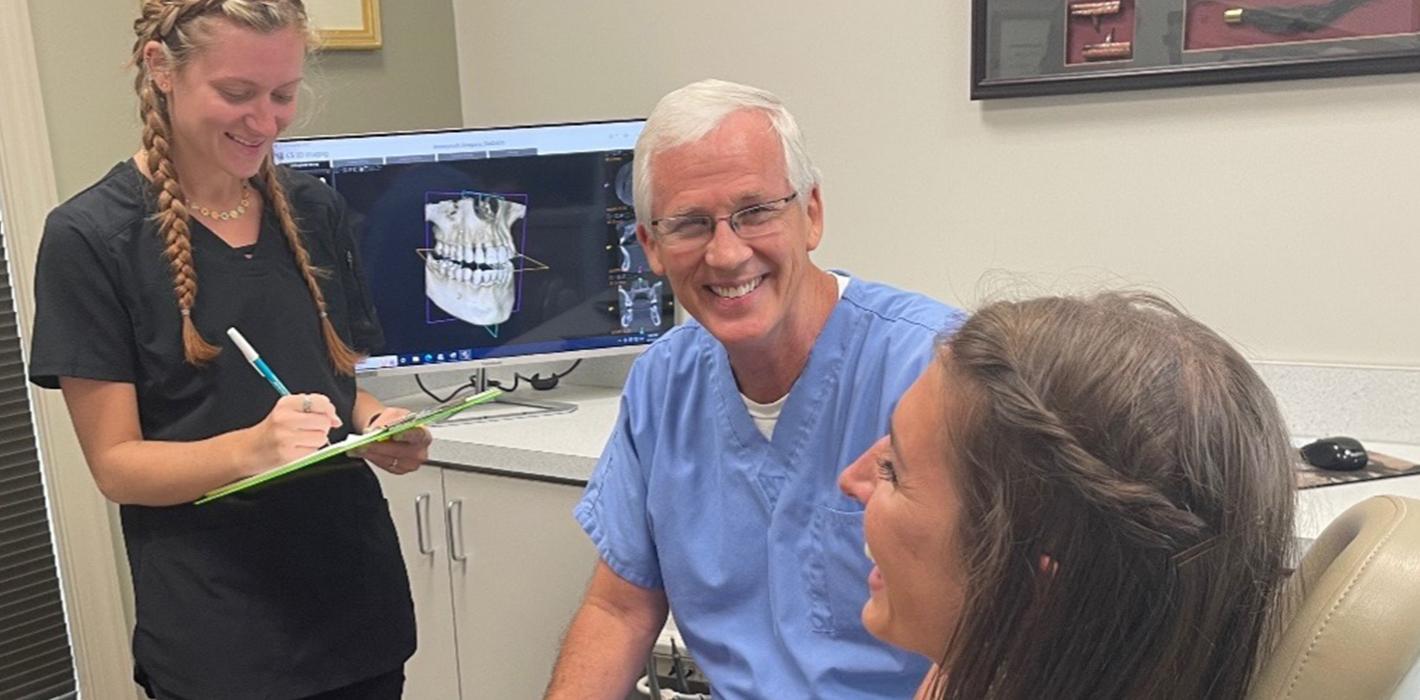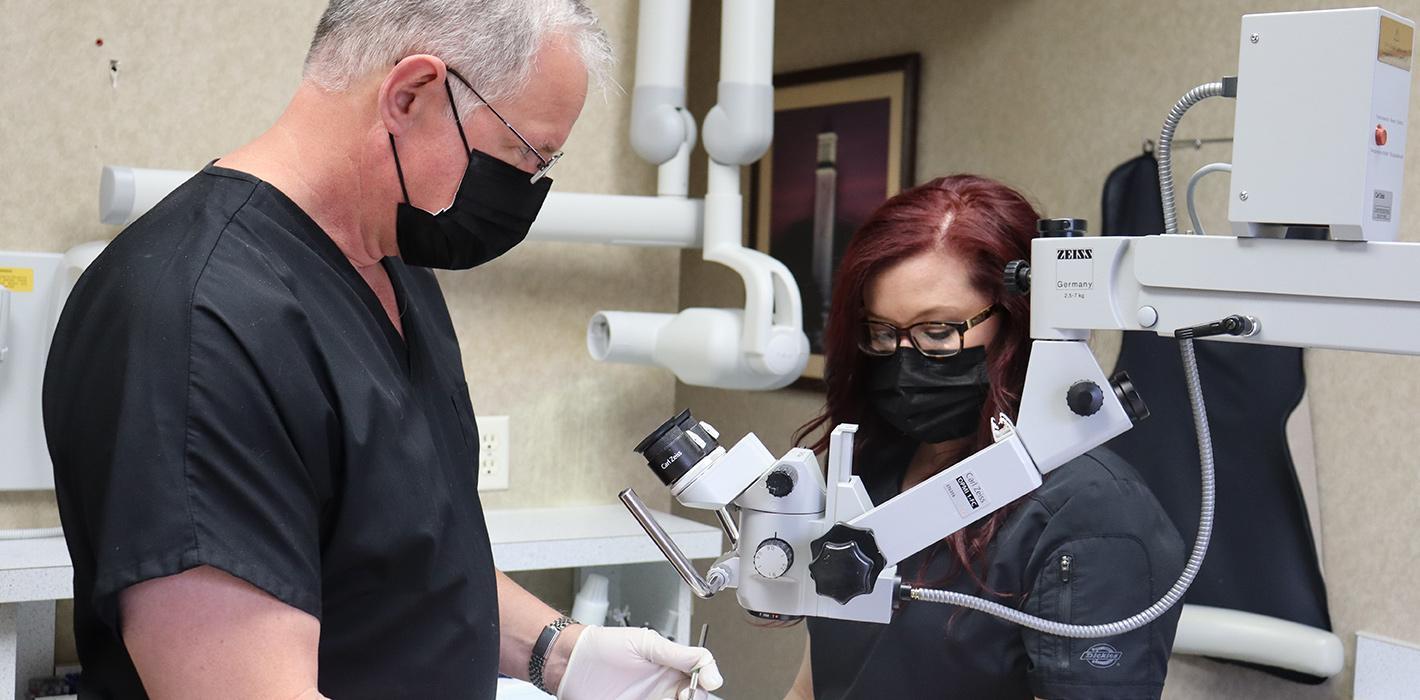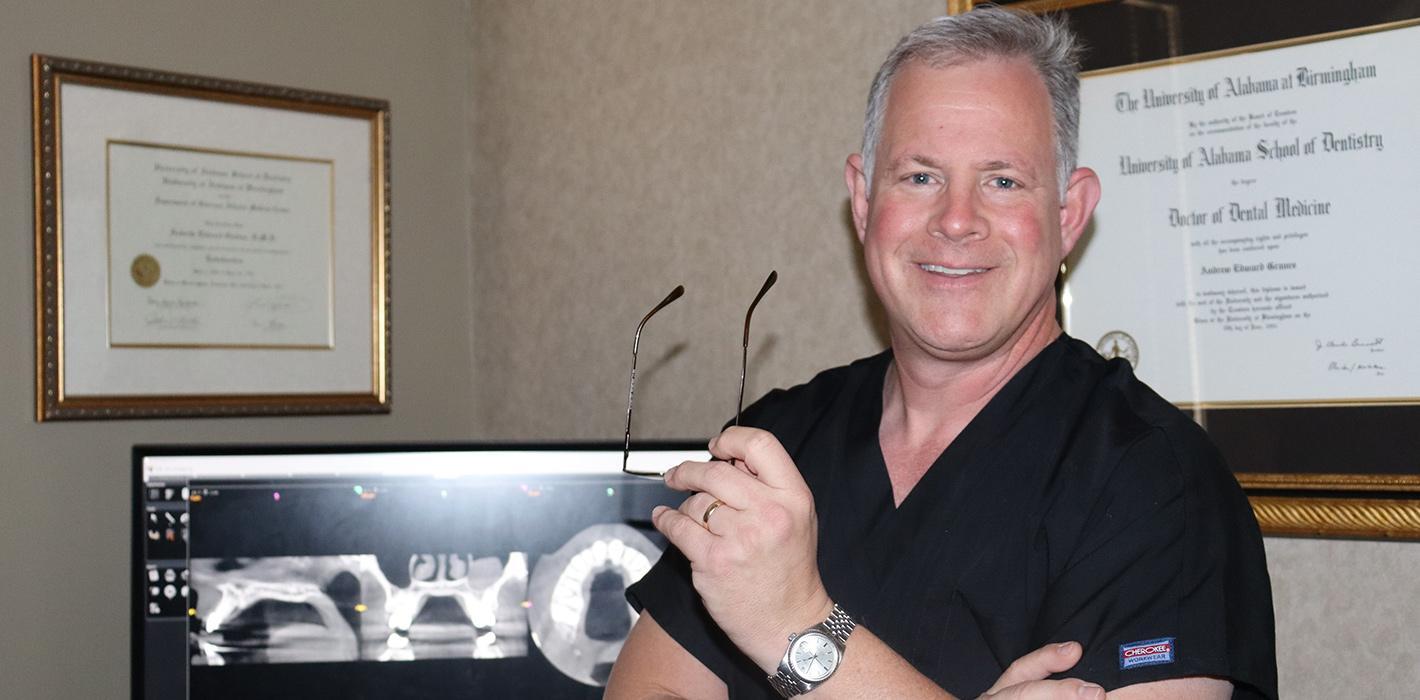FAQs

What Will My Treatment With West Alabama Endodontics be Like?
We will share each step we are taking to complete your root canal. Our team works together to minimize pain and discomfort and set you at ease.
While treatment times may vary from patient to patient, we deliver efficient treatment that preserves your natural teeth, restores your smile and gets you on the road to recovery as quickly as possible.
Please call our office with your questions about how to prepare for endodontic therapy and any information you or your general dentist may need from us: 205-633-3636.
What Happens During a Root Canal?
A root canal is needed when tissue beneath your teeth becomes infected. This can happen as a result of significant decay, injury, chips, cracks or trauma to the tooth. During a root canal, we remove this infected pulp and soft tissue, thoroughly clean the canal, then disinfect and seal it to prevent future infection.
How Often Will I Come Back to West Alabama Endodontics Following Treatment?
Usually, endodontic therapy can be completed in one treatment session with only a few follow-up appointments to make sure the healing process is going smoothly. If you require more intensive treatment and need to return to our office for another procedure, our scheduling team will work with you to make another appointment.
Following your initial treatment, we will be in touch to schedule your follow-up appointments with the team. During these appointments, we will evaluate how you are healing and make any additional recommendations to ease the process.
Communication between oral health partners is a priority for our team. We’ll work closely with your general dentist’s office to determine when you will go back there for a checkup, and if further treatment or examination is needed from our team.
Are You Accepting Patients?
We are currently accepting patients in need of endodontic treatment here at West Alabama Endodontics. We maintain a large professional network of referring general dentists and also offer emergency appointments for patients who need them. Please call us at 205-633-3636 to book an appointment.
How Much Does Treatment Cost?
We provide affordable, high-quality endodontic treatment to the patients of Tuscaloosa and the surrounding West Alabama area. Costs vary based on your treatment and insurance coverage. We will clearly communicate your payment expectations before and following treatment. We are also happy to work with you and develop a payment plan. Please call our office at 205-633-3636 for more information.

 Meet the Doctors
Meet the Doctors
 Sterilization Protocol
Sterilization Protocol
 FAQs
FAQs


